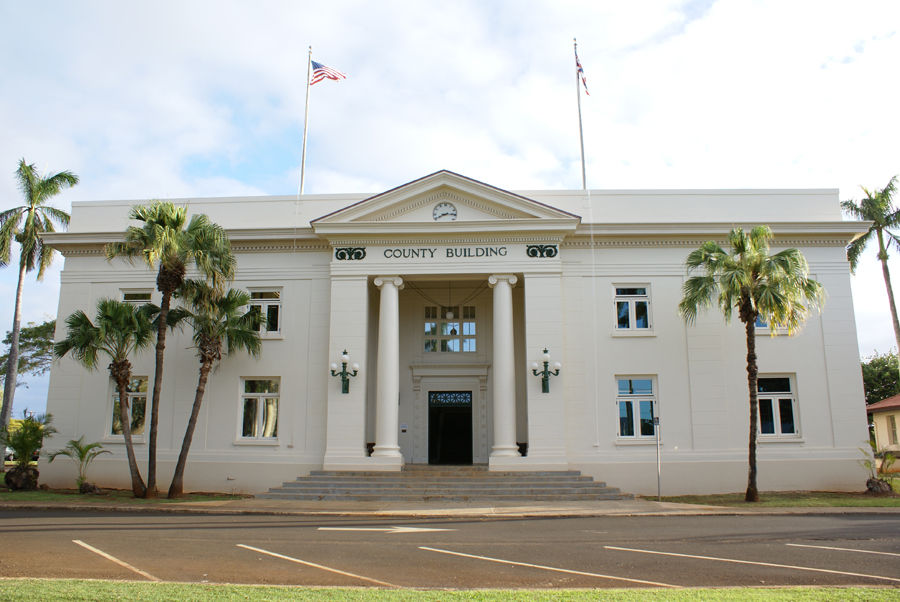LIHUE — Mayor Bernard Carvalho Jr. has vetoed a bill that would likely have resulted in higher taxes for agricultural lands being used for biotech research. In a letter Wednesday to Kauai County Council Chair Mel Rapozo, Carvalho said he
LIHUE — Mayor Bernard Carvalho Jr. has vetoed a bill that would likely have resulted in higher taxes for agricultural lands being used for biotech research.
In a letter Wednesday to Kauai County Council Chair Mel Rapozo, Carvalho said he found the bill is “poorly crafted, disincentivizes certain forms of agriculture production and would be difficult and costly to implement and enforce.”
“After careful review of the bill I do not believe that this measure is consistent with our historic and current philosophy of encouraging continued use of agriculturally zoned lands for agriculture purposes through a tax structure that benefits farmers and ranchers,” he wrote. “In fact, I believe it is detrimental to our efforts to expand agriculture opportunities for all types of farming on Kauai.”
Bill 2546, which initially sought to establish “agronomics” as a new and separate real property tax class, was introduced by former Kauai County Councilman Tim Bynum and passed Nov. 19 by the previous council body by a 4-2 vote after several amendments. Councilmen Rapozo and Ross Kagawa voted against the measure, while former Chair Jay Furfaro was absent from the vote.
The bill aimed to separate agricultural lands on Kauai into three categories — pasture, diversified agriculture and biotech research — when county officials are calculating real property tax assessments. Under the law, properties in the biotech research category would be assessed based on the amounts paid in lease rents instead of fair market values. All properties, however, would be subject to the county’s agricultural real property tax class rate of $6.75 per $1,000 in assessed valuation.
In his letter, Carvalho wrote that he took an oath Dec. 1 to uphold the state constitution, which includes conserving and protecting agricultural lands and promoting diversified agricultural.
“After studying this bill, it is my conclusion that it does not achieve these goals, and in fact impedes the promotion and expansion of diversified agriculture on Kauai,” he wrote.
Former Councilman Tim Bynum said he was disappointed in the mayor’s decision.
“I’m sad to hear that because the bill made sense,” he said. “It was the right thing to do. The county needs revenue and it’s only fair that people pay their fair share.”
In some cases, Bynum said, lease payments that seed companies are making to large island landowners are 10 times those of local farmers.
“We’re subsidizing this change in land use from local agriculture to research,” he said.
Kagawa said he did not support the bill due to a number of issues, including how it would be implemented and its legality.
“Continuously breaking new ground, like (Bill) 2491, I find to be reckless,” he said. “I don’t want to be reckless with taxpayers’ money.”
Kagawa said he would be supporting the mayor’s veto decision.
As it did with Ordinance 960 (formerly Bill 2491), a county law regulating genetically modified crops and pesticides that was declared invalid by a federal judge, the newly elected council will have an opportunity to override the mayor’s veto. Five votes would be needed.
Carvalho said one thing that must be considered is that several companies impacted by the bill — Syngenta, DuPont Pioneer, BASF and Dow AgroSciences — currently sublease parts of their acreage to ranchers and farmers growing other crops. If enacted, he said, the bill would effectively raise property taxes on ranchers and smaller farmers growing crops, including green beans, ginger and sweet potatoes.
“This point underscores the fact that these companies are part of our diversified agricultural mix, and provide valuable agricultural benefits to Kauai beyond their core business of growing seed crops,” he wrote.
And with current staffing and expertise, the measure would be difficult to implement and enforce, according to Carvalho.
“In our estimation, the county will not realize financial benefits that justify either the administrative cost or the potential downside of disincentivizing diversified agriculture,” he wrote.
Michael Tresler, senior vice president of Grove Farm Company, which leases land to seed companies on Kauai, said company officials “applaud the mayor’s leadership to yet again do the right thing for Kauai and veto a bad bill.”
The bill, he said, “was flawed, and by our attorneys analysis, also included many legal issues.”
“The bill would have negatively impacted small farmers by tripling the amount of real property taxes they currently pay,” Tresler wrote in an email on Thursday. “The bill is another failed attempt by the past council to rush bad legislation that was not properly reviewed for legality nor analyzed through a reasonable process to determine the impacts of the bill. We look forward to working collaboratively with the new council to put forth legislation that is legal, positive for Kauai, and pro ag.”
Chris D’Angelo, environment writer, can be reached at 245-0441 or cdangelo@thegardenisland.com.


